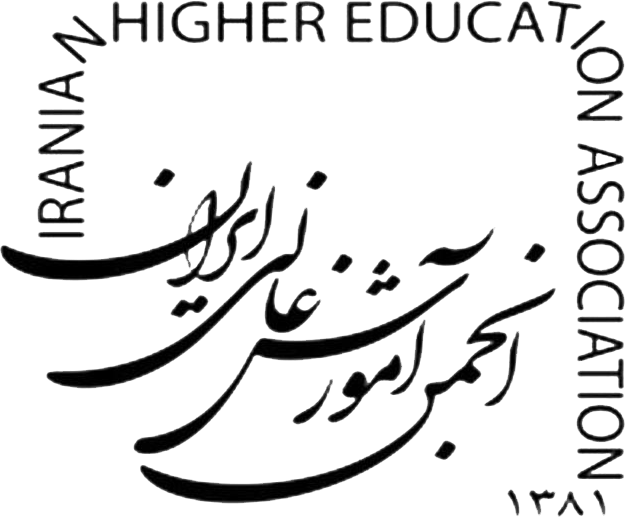Volume 15, Issue 3 (2024)
ihej 2024, 15(3): 20-42 |
Back to browse issues page
Download citation:
BibTeX | RIS | EndNote | Medlars | ProCite | Reference Manager | RefWorks
Send citation to:



BibTeX | RIS | EndNote | Medlars | ProCite | Reference Manager | RefWorks
Send citation to:
Musavi S J, Asadpour M, Souzanchi Kashani E. Identifying the challenges of student assessment and admission system: consequences for school, family and university. ihej 2024; 15 (3) :20-42
URL: http://ihej.ir/article-1-2018-en.html
URL: http://ihej.ir/article-1-2018-en.html
1- Assistant Professor, Supreme Council of the Cultural Revolution, Tehran, Iran , musavi14@yahoo.com
2- PhD Psychology Studednt, University of Vienna, Vienna, Austria
3- Assistant Professor, Science and Technology Policy Department, Sharif University of Technology, Tehran, Iran
2- PhD Psychology Studednt, University of Vienna, Vienna, Austria
3- Assistant Professor, Science and Technology Policy Department, Sharif University of Technology, Tehran, Iran
Abstract: (2993 Views)
Objective: This article has been compiled with the aim of identifying and investigating the challenges of the student evaluation and admission system, focusing on Iran’s national exam (Konkoor). It explores various dimensions of the exam and its impacts on family, public education and higher education systems.
Methodology: Employing a qualitative approach, this research utilized thematic analysis through interviews with 31 experts in evaluation and admission systems. Primary data and information were collected, yielding 213 key sentences and 114 basic themes, which were categorized into 16 organizing themes. To validate and refine the concepts and themes, five focus group meetings were conducted with scientific experts and relevant authorities.
Finding: Challenges within the evaluation and admission system were classified into five levels, each encompassing a set of fundamental challenges: challenges within the education system related to the entrance exam, challenges intrinsic to the exam (Konkoor) itself, challenges associated with the exam's surrounding environment, challenges in the admission process, and strategic and macro-level challenges related to the exam.
Results and Discussion: The research underscores the need for a thorough revision of the entrance exam to prioritize educational objectives, academic guidance, and the efficient selection and accreditation of academic records in schools. Moreover, the annual and exclusive nature of the entrance exam, coupled with economic factors such as entrance exam institutions, non-profit schools, and extensive advertising, pose significant mental and financial challenges for students and their families, warranting serious attention. Additionally, changes in medical capacity policies and local selection criteria have added complexity to the admission process. Therefore, macro-policy interventions and cultural reforms are imperative for effective management of the entrance exam.
Methodology: Employing a qualitative approach, this research utilized thematic analysis through interviews with 31 experts in evaluation and admission systems. Primary data and information were collected, yielding 213 key sentences and 114 basic themes, which were categorized into 16 organizing themes. To validate and refine the concepts and themes, five focus group meetings were conducted with scientific experts and relevant authorities.
Finding: Challenges within the evaluation and admission system were classified into five levels, each encompassing a set of fundamental challenges: challenges within the education system related to the entrance exam, challenges intrinsic to the exam (Konkoor) itself, challenges associated with the exam's surrounding environment, challenges in the admission process, and strategic and macro-level challenges related to the exam.
Results and Discussion: The research underscores the need for a thorough revision of the entrance exam to prioritize educational objectives, academic guidance, and the efficient selection and accreditation of academic records in schools. Moreover, the annual and exclusive nature of the entrance exam, coupled with economic factors such as entrance exam institutions, non-profit schools, and extensive advertising, pose significant mental and financial challenges for students and their families, warranting serious attention. Additionally, changes in medical capacity policies and local selection criteria have added complexity to the admission process. Therefore, macro-policy interventions and cultural reforms are imperative for effective management of the entrance exam.
Keywords: assessment, admission, entrance exam, Konkoor, student assessment and admission system, academic guidance, academic grade
Send email to the article author
| Rights and permissions | |
 |
This work is licensed under a Creative Commons Attribution-NonCommercial 4.0 International License. |




